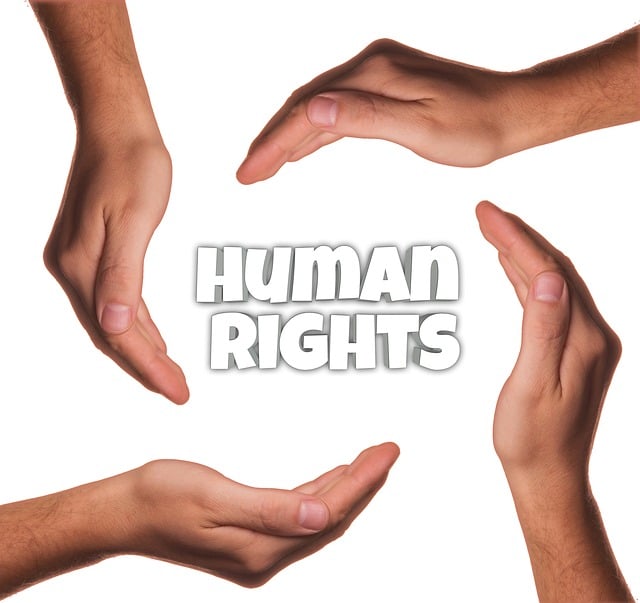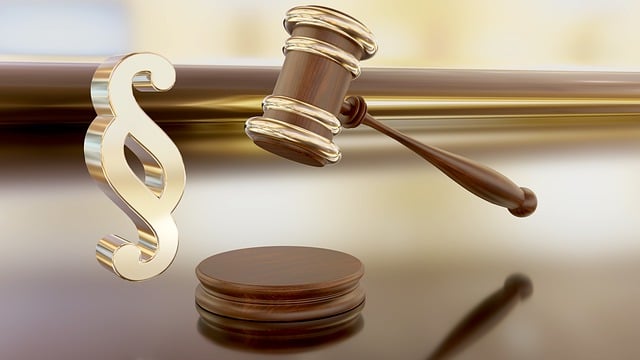Understanding the Steps in Criminal Procedure Litigation is essential for fairness and due process in healthcare legal disputes. This process involves investigation, charges, hearings, trials, appeals, evidence handling, and ethical considerations to protect both accused and victims' rights. Healthcare organizations, with specialized legal support, navigate these steps to defend against misconduct allegations, balance public interests, and maintain patient trust.
In the complex landscape of healthcare, legal issues are a critical yet often overlooked aspect. This article navigates the intricate steps in criminal procedure litigation, offering insights into key players and their roles. From evidence handling and discovery processes to ethical considerations and patient privacy rights, we explore common challenges and defense strategies. Understanding these components is essential for professionals aiming to safeguard healthcare practices and ensure fair, compliant operations.
- Understanding Criminal Procedure in Healthcare Litigation
- Key Players and Their Roles in Legal Proceedings
- Evidence Handling and Discovery Processes
- Ethical Considerations and Patient Privacy Rights
- Common Legal Challenges and Defense Strategies
Understanding Criminal Procedure in Healthcare Litigation

In healthcare litigation, understanding criminal procedure is paramount. The steps in criminal procedure litigation form a structured framework designed to ensure fairness and due process for all parties involved. It begins with the investigation stage, where law enforcement or regulatory bodies gather evidence to determine if a crime has been committed. If sufficient evidence is found, charges are filed against the healthcare provider or institution, marking the official initiation of the legal process.
This procedure includes several key stages that aim to protect both the accused and the victims’ rights. These steps encompass arrest, bail hearings, grand jury reviews, indictment (or its avoidance), pretrial preparation, trials, and appeals. For his clients, navigating these stages is crucial, as it can lead to the complete dismissal of all charges if the defense strategy is robust and evidence-based. Effective legal representation in healthcare litigation requires a deep understanding of these criminal procedure steps to ensure the best possible outcome for the accused.
Key Players and Their Roles in Legal Proceedings

In healthcare legal issues, several key players are involved in criminal procedure litigation, each playing a crucial role in ensuring justice is served. These include prosecutors, defense attorneys, judges, and sometimes, regulatory bodies from across the country. Prosecutors, typically representing the state or federal government, have the burden of proving the defendant’s guilt beyond a reasonable doubt. They gather evidence, file charges, and argue for punitive measures during trials. Defense attorneys, on the other hand, act as advocates for their clients, often presenting a white collar defense strategy to counter accusations, ensuring their clients’ rights are protected throughout the process.
Judges oversee these legal proceedings, making critical decisions from pretrial hearings to sentencing. They interpret laws and ensure fair treatment, applying them objectively in accordance with the Steps in Criminal Procedure Litigation. The complex nature of healthcare cases often demands a deep understanding of both law and medical practices, as lawyers navigate this intricate landscape for their clients.
Evidence Handling and Discovery Processes

The evidence handling and discovery processes are pivotal components of any legal dispute, especially in healthcare-related cases that often involve complex medical records and sensitive patient information. These procedures, which are integral to the steps in criminal procedure litigation, ensure transparency and fairness during trials. In healthcare litigation, proper documentation and record-keeping are crucial for both defense and prosecution. The process begins with identifying relevant evidence, followed by a thorough review of medical records, laboratory reports, and any digital data related to the case. This stage is critical in white collar defense cases, where financial transactions and electronic communications play a significant role.
Discovery allows lawyers to inspect and gather additional proof, ensuring that all parties have access to the relevant facts. This is particularly important when dealing with healthcare organizations and their respective business operations, as it helps uncover potential breaches of privacy or ethical standards. Moreover, in cases involving philanthropic and political communities, where reputational damage is a concern, meticulous evidence handling can mitigate risks and ensure fair representation.
Ethical Considerations and Patient Privacy Rights

In healthcare, ethical considerations and patient privacy rights are paramount. As healthcare professionals navigate complex scenarios, they must adhere to strict ethical guidelines that ensure patient autonomy and dignity. This involves balancing confidential information with legal obligations, especially during criminal procedure litigation. The steps in criminal procedure, such as evidence collection and presentation, must respect the patient’s privacy rights while following established legal protocols.
An unprecedented track record of successful cases across the country underscores the importance of these considerations. Jury trials, a cornerstone of the American justice system, demand transparency and fairness, necessitating a delicate balance between protecting patient information and presenting relevant data as evidence. Healthcare organizations with an understanding of both ethical principles and legal procedures can navigate these challenges effectively, ensuring they maintain patient trust while upholding their professional and legal duties.
Common Legal Challenges and Defense Strategies

Healthcare organizations often face unique legal challenges that require careful navigation through complex regulations and ethical considerations. One common area of concern is criminal procedure litigation, where entities may be held accountable for misconduct, such as fraud or violation of patient rights. Understanding the steps in criminal procedure is crucial for developing effective defense strategies. These include identifying the specific charges, gathering evidence to challenge them, and constructing a legal argument that respects both public interests and individual rights.
A robust defense strategy for healthcare legal issues often involves a multifaceted approach tailored to the respective business. This may include implementing stringent compliance programs, ensuring thorough staff training on ethical practices, and establishing robust internal audit mechanisms. For white-collar defense, across the country, reputable law firms specializing in healthcare law play a pivotal role in guiding organizations through these challenges. They employ specialized knowledge and tactics to protect clients’ interests, offering insights into regulatory trends and navigating the evolving legal landscape to foster compliance and mitigate risks.
In navigating healthcare legal issues, understanding the intricate steps in criminal procedure litigation is paramount. From the initial stages of evidence handling and discovery processes, to the ethical considerations surrounding patient privacy rights, each aspect plays a vital role. By recognizing the key players involved—attorneys, medical experts, and judges—and employing robust defense strategies to address common legal challenges, healthcare providers can ensure fair practices and patient protection. These comprehensive insights empower professionals to manage legal proceedings effectively, fostering trust and transparency in healthcare delivery.






